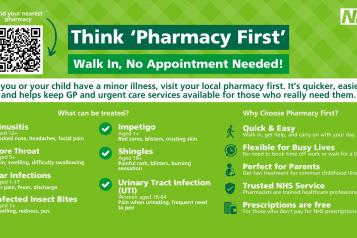Flu vaccination: The main things to know about the 2019 programme

What is flu?
Flu is an acute viral infection of the respiratory tract, usually characterised by a fever, chills, headache, aching muscles, joint pain and fatigue. It is a highly infectious virus different to the common cold, and spreads rapidly in closed communities and even people with mild or no symptoms can infect others.
Flu kills an average of 8,000 people every year, and it can be particularly serious in older adults, very young children, and people with underlying health conditions.
Why get the vaccine and who is eligible?
The flu vaccine remains the best defence we have against flu and protects those people who are most vulnerable.
Certain groups of people are at higher risk from flu, including adults aged 65 and over, those with underlying health conditions, pregnant women, and frontline health and social care workers.
In 2019/20, the flu vaccination will be offered to:
- those aged 65 years and over
- those aged 6 months to under 65 years in clinical risk groups
- pregnant women
- those living in a residential or nursing home
- the main carer of an older or disabled person
- children aged 2-3 (on 31 August 2019) and all primary school aged children
Employers of frontline health and social care workers also have a responsibility to ensure their staff can get the free vaccine.


